Clock, The (1945)
“Why can’t we have this one last day together — couldn’t we?”
|
Synopsis: |
|
Genres, Themes, Actors, and Directors:
Response to Peary’s Review: As the granddaughter-in-law of a wartime bride, I’ve heard much about the reality of the romantic climate at the time, which was very much one of grabbing opportunities as they presented themselves — and the storyline is faithful to that general sentiment. I’m sure it hit a nerve with audiences at the time. What ultimately undoes the film, however — as Peary points out — is its attempt to engage the leading couple in a series of “authentic” NYC adventures, most of which simply never ring quite true. While James Gleason is believably wholesome as a milkman who picks up Walker and Garland late at night (and I had no problem buying the idea that he’d take them along for a ride; such night-time jobs can get pretty lonesome), the excitement they subsequently undergo quickly feels calculated to drive the plot forward. Meanwhile, Minnelli’s attempts to infuse humor into the script — such as through the weird performance of a prim older woman (Moyna MacGill, Angela Lansbury’s mother) who glances repeatedly up to the heavens while attempting to eat her dinner through the ruckus caused by drunk Keenan Wynn (perfectly cast) — often fall flat, and seem better suited for a different type of indie film altogether. With all that said, The Clock does get several things right — most notably the palpable sense on the part of both Walker and Garland’s characters that they’ve been thrown into a unique pocket-hole of fate, one they’d be stupid to turn against or ignore. In the midst of war and leave and loneliness, finding a “soulmate” — even for a few days — would surely feel larger-than-life, and it absolutely comes across as authentic that they’d scramble to find a way to consummate (and legitimate) their brief union. So, despite my overall grumpiness, I’ll concede that The Clock is worth a look on numerous levels, even if it fails to deliver an entirely satisfying package. Redeeming Qualities and Moments:
Must See? Links: |
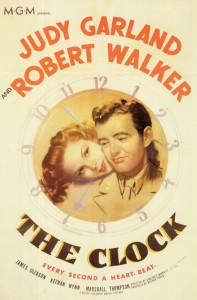
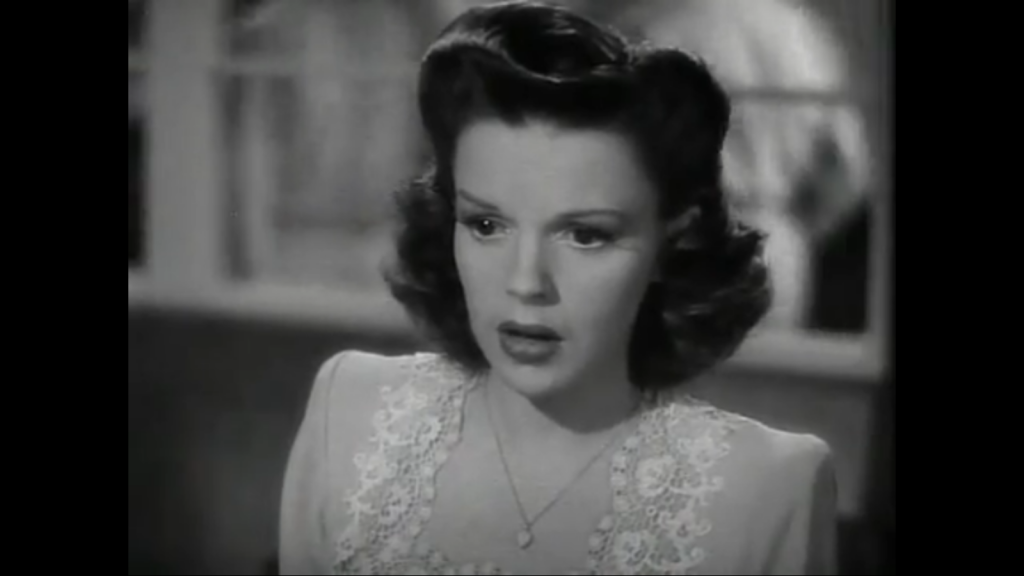
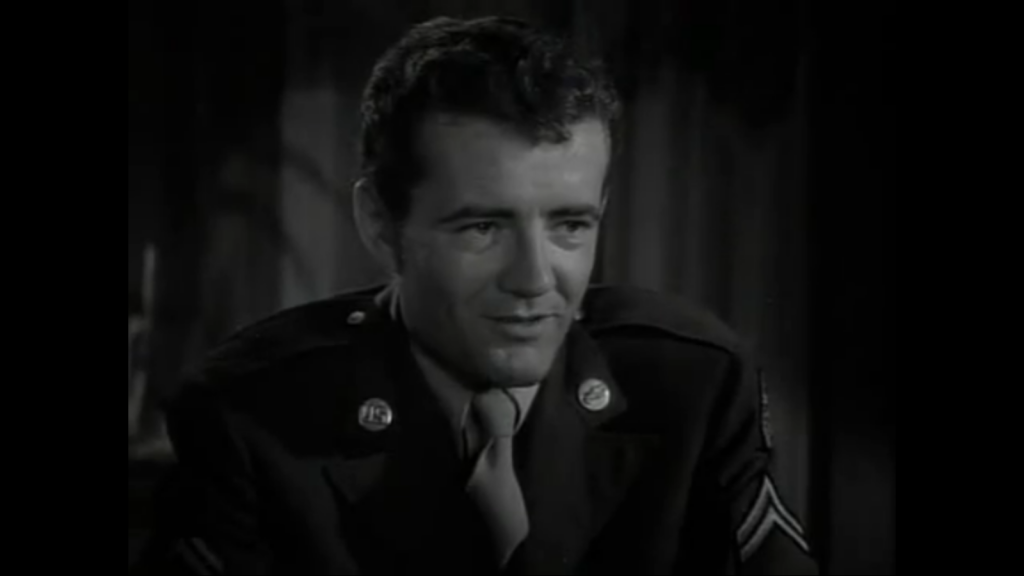
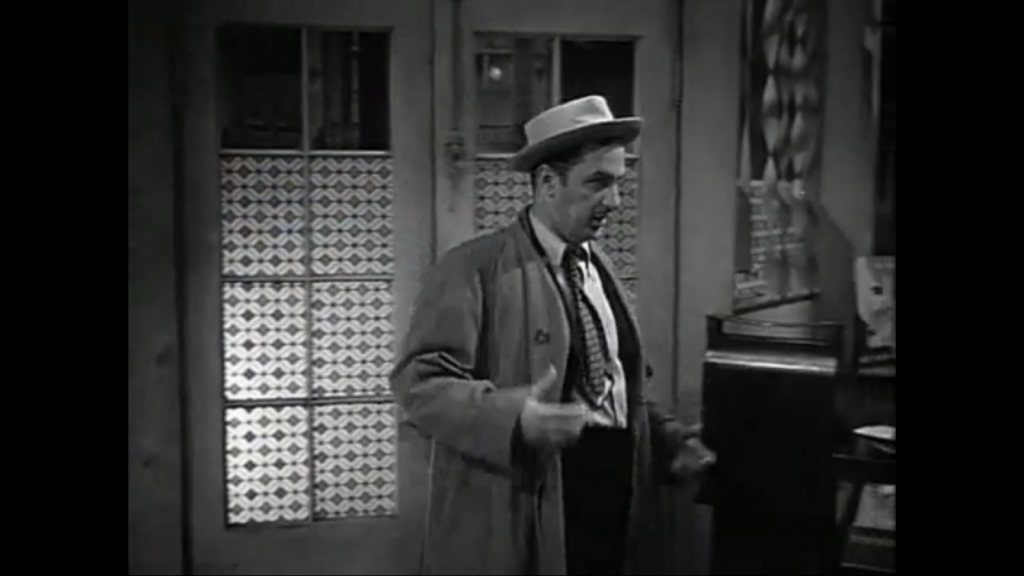
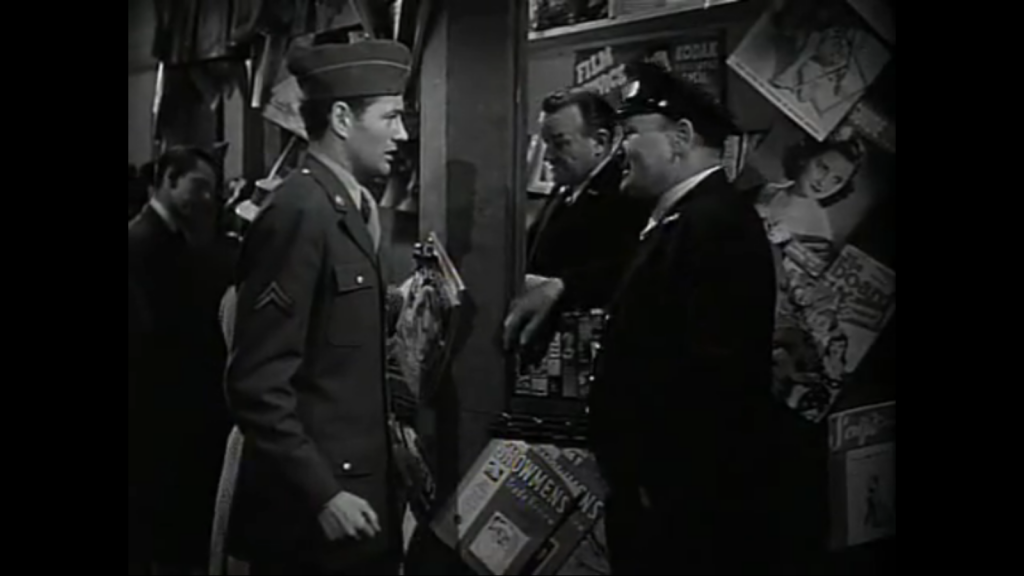
One thought on “Clock, The (1945)”
Not a must. I find the assessment rather kind and forgiving but, at any rate, can be a little grumpy about ‘The Clock’ myself. It’s an annoying film.
I saw it once many years ago and had little memory of it. (~and you know what that tends to mean.) On a revisit, I was shocked at how generally awful the script is (esp. the dialogue). I’m sure the film project was undertaken as a simple boy-meets-and-marries-girl thing. …Well, yes, it *is* simple. Some of it laughably so.
The scene in which Garland and Walker meet is just plain bad, period. Garland’s female roommate who can’t stop talking (we get it, we get it!) is a one-note joke that quickly falls flat. G & W’s first kissing scene is accompanied by an insane choir of angels (the film’s entire score is manipulative and seemingly designed by committee; one of the worst scores I’ve ever heard). A particularly bizarre scene comes right after G & W get married: they’re sitting in a restaurant and Garland soon enters a semi-psychotic state (seriously) about her wedding ceremony (because “it was so…so…ugly!”. …Ugly??? What, was it depraved or something?) I could go on, but why beat a dead horse?
Working with an inferior script brings out Minnelli’s alter ego desire to over-direct and sentimentalize. So I don’t think any of the performances are all that good, unfortunately. The only one who survives this mess is Keenan Wynn (dependable as always, playing a very entertaining drunk with what seems, at least partially, improv – since his tone is so out of keeping with the rest of the film, thank God – I wish the film were about *him*!).
Perhaps worst of all is G & W’s ‘morning after’ scene, when we’re meant to feel the afterglow of their first night of sex as newlyweds. A few minutes of silence go by as they simply glance dazedly at each other and make quaint little ‘young love’ motions. Sheesh!
Not that I’m without a romantic streak – I can understand the impulse behind the film’s premise. I just find the film rather unbearable.